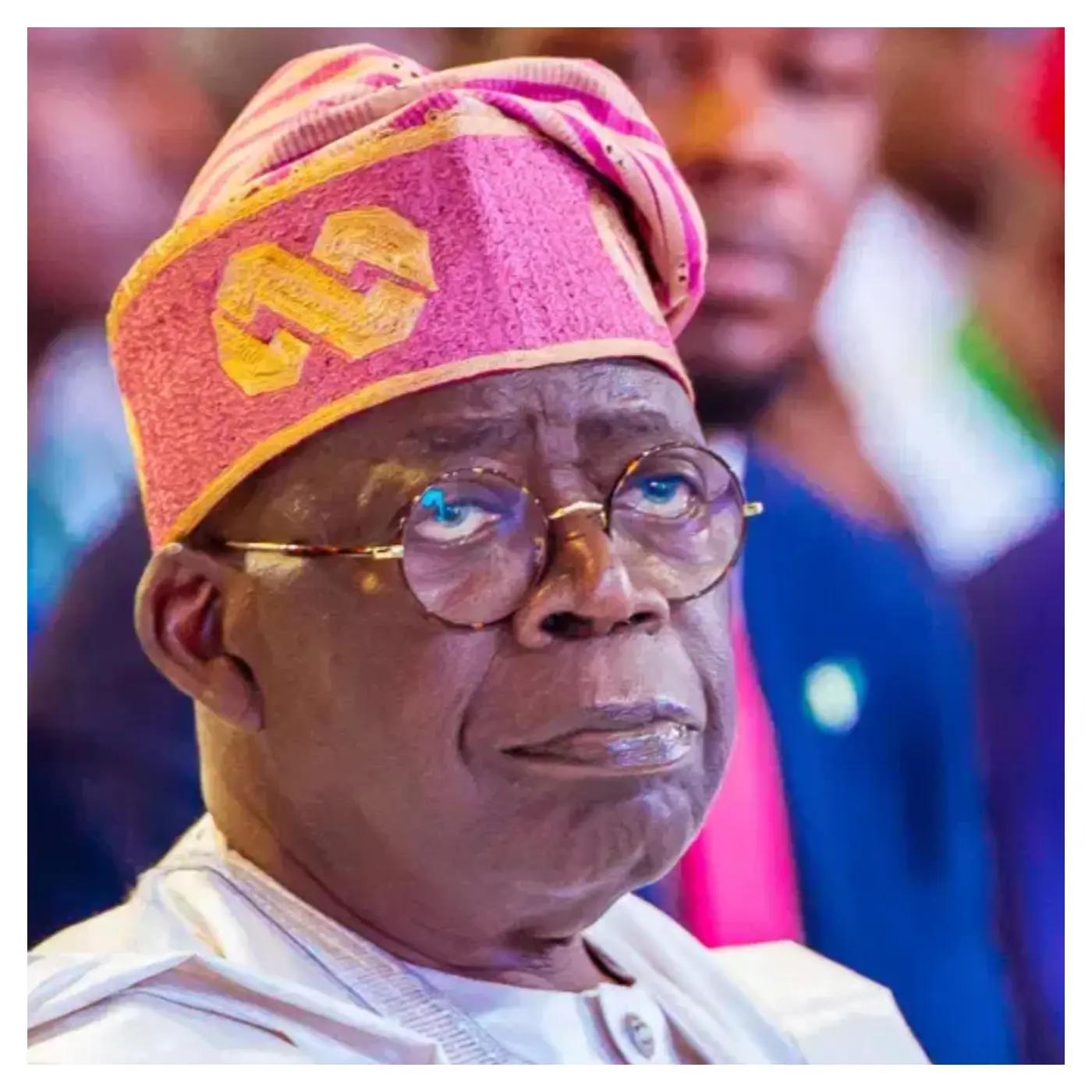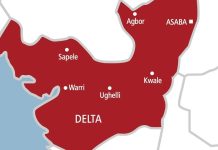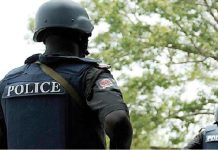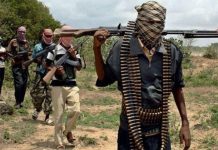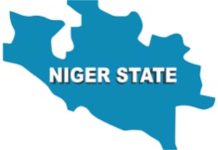Africa-Press – Nigeria. A security and intelligence expert, Dr Kabiru Adamu, has weighed in on the current killings of over 200 people in Benue state by suspected herdsmen.
Adamu, the Managing Director of Beacon Consulting Limited, in an interview with DAILY POST on Tuesday shed insight on the impending visit by President Bola Tinubu to the State as well as the expectations thereof. Excerpts:
What’s your advice to the President as he visits the affected communities in Benue following the recent killings in the State?
First of all, I strongly believe it’s a political gesture, and that’s okay. He’s a politician. He should set the tone for an effective security approach to address the issue.
The visit itself is not a security approach. It is, like I said, a political approach, and it is important it would hopefully allow the political platform, as it were, to reduce the current political tension.
I don’t need to tell you more. As you know, there are camps within the ruling party. The camp the governor belongs to and the camp of the SGF. And then I also believe there is a third or even fourth camp as well that exists. And then, of course, the dynamics between the APC, and the PDP, to whom the immediate past Governor belongs, and all of that.
So that’s breeding the violence in the state, and the visit hopefully will help reduce that tension. But more importantly, it is for the President to ensure that he puts in place an effective security approach.
You talked about the President putting an effective security approach in the light of the Benue attacks, can you give more details?
I put up yesterday on my LinkedIn page, a publication that looked at all of the six components to this effective security approach. One is the ability to detect a threat element, the ability to deny them access to communities, the ability to delay if, for instance, for any reason, they still go ahead after they’ve been detected, to attack. The number four is the ability to respond. That means security forces should be able to respond once an attack is going on. And then number five is the ability to review after an incident like what is going on now, let’s review it dispassionately. And then number six is the ability to recover.
Now, that is what the President, when he’s back, I’m hoping he will direct the security leadership to come up with, together with the governor of the state so that we will prevent the recurrence. If that is not done, then, unfortunately, this visit will just be a political visit, without achieving this security component.
Your assessment of the government actions so far following the tragic incident
There is what I will call the missed opportunity. I believe that as in most countries of the world, the president should have convened the National Security Council. If this had happened in the UK, the prime minister would have convinced the Cobra and he would have discussed the issue and together with the security team, worked out a strategy for identifying the perpetrators and punishing them.
Unfortunately, the opportunity has been missed. Over 100 people were killed. We did not convene the National Security Council, neither had a strategy been put up to develop them – all we’ve seen is visits upon visit. And that is not what our security sector governance principle states. Our security sector governance according to the Constitution, states the National Security Council is the highest Council, and should be convened if an issue of public interest like this happens.
So I think our political class would need to do better in terms of understanding the provisions of the Constitution in terms of security sector governance, and then, of course, in terms of security sector reform.
President Tinubu recently urged Benue people to reconcile with their attackers. Gov Hyacinth Alia said the same too. Do you agree with their view?
Yes, because the President has at his disposal an intelligence report.
So the general assumption out there is that it is so-called Fulani herdsmen that are behind the killings in Benue state. But the President knows, and those of us in intelligence know that the threat elements in Benue state, beyond the so called Fulani herdsmen, there are Jukun militias, there are Tiv militias, there are criminal gangs, there are political thugs that have been armed.
In 2016 into 2017, I did an intervention in the border area between Taraba and Benue states. Three of the staff that I worked with in that intervention were abducted and they were coerced, firstly, conscripted into a militia that was led by the late Ghana to date, those three persons have not been released. Like I said, they have been coerced, conscripted into a militia.
So the President is aware of this. He’s also aware of the political dynamics that I talked about earlier on in the beginning of our conversation, and that is why he made that statement. The issue is political. It has to be addressed using political interventions.
But beyond the political interventions are also the socio-economic. Think about it, Benue is the food basket of the country. It has produced beyond any other state in Nigeria. But where is Benue sitting in terms of industrialization in Nigeria? Probably at the bottom, maybe only Kebbi state is worse than them in terms of industrialization. And so the youth are there. They don’t have jobs, they can’t go to farm because of the security circumstances in the state and all of that.
So that’s a socio-economic component; there is also an environmental component. The climate change that is affecting the dynamics of professions and livelihoods in the state. There is also the gender component that is also driving the conflict. So the President is aware of all of these, and that’s why he talked about, you know, engagement and mediation.
Aside Benue, Enugu and Abia are also currently witnessing attacks by herdsmen. Does this advice about negotiation and reconciliation apply to them as well?
So again, there is an assumption that the cause of the crisis is herders’ conflict. In Anambra State as an example,
Chidi Odinkalu, renowned lawyer, headed a committee, and before the report of that committee, all of us thought the crisis in Anambra State was as a result of IPOB agitation and other secessionist agitation. But the revelation of that committee showed us that the dynamics in the state were driven by other factors.
Of course, the issue of IPOB and the other secessionist groups was there, but they were not topping the agenda in terms of the drivers of conflict. So the same thing with Enugu state, the same thing with other states in the region.
What we need to do as a country is to disaggregate the security challenges, the assumption, for instance, that it is others that are killing everywhere. Yes, others may be part of the security dynamics, but the likelihood is that the way we are portraying it is not number one. As I’m seated now I’m looking at a bar chart, then Benue state seats in number four in terms of fatality rates in the country. It is the Borno state that is topping, followed by Zamfara, Katsina, Niger, and then, of course, Benue, then Kaduna, and after that is Plateau state.
So if we do not pay attention to these dynamics and approach this issue at the moment, people from the other states that I’ve mentioned, where the fatality rate is higher, are asking themselves the question, why did the President visit Benue. Why hasn’t he visited them? Why hasn’t he visited Kasina? Why hasn’t he visited Zamfara and Borno over the security challenge? Why is Benue singled out? Is it because there is a religious dimension to the issue? And if it’s because there is a religious dimension, what will that bring to us as a people in terms of the future of Nigeria.
So we need to be very careful in the way we approach the issues. We need to understand that, yes, the President encourages consultation, encourages mediation, but that should not be the tactics across the states. We need to disaggregate the issue in each state and then approach it accordingly.
That is why we have different security and intelligence organizations – in the report, in the brief they write, they would have disaggregated these challenges so that we know the best approach in managing it. And frankly, all the approaches should have one thing in common, which is accountability.
It would be good if you suggest how accountability can be achieved in our public security sector?
At the moment, our public security departments are not holding them accountable enough, and I’m hoping that as we go forward, we’ll increase the accountability. Let people who allow killings to occur, like in the case of Benue, let them be held accountable. If it’s the police, which is the agency for primary security, the immigration that allowed the border to be porous, let’s hold them accountable.
If you look at the security budget, which is around 6 trillion naira, more than any other sector at the moment, why should we be spending that amount of money on security agencies? And yet we are not getting the kind of results. So this is the kind of conversation I’m hoping that we have, and not bring any religion or ethnicity into the conversation. Accountability is the way to go. Let’s enhance it, and then hopefully we see an improvement in public security.
Many Nigerians are of the view that insecurity is worsening daily in the country. How true is this?
Yes, of course. When we tallied, you know, the fatalities for the last two years of President Muhammadu Buhari and then the first two years of President Bola Tinubu, as of May 2025 about 17,000 Nigerians have been killed.
The last two years of President Buhari – 2022 into 2023 – about 18,000 people died. So the difference is not much – just about 100 plus more, in the case of President Buhari, compared to President Tinubu.
And in all ramifications, the number is too high. We need to bring it down to probably about 100 then we will now celebrate achievement.
The achievement is not commendable. The reason is very clear. I have spoken about security sector governance. We need to enhance under this democratic setting, security sector governance. What we have at the moment is likened to an analogy of you using a basket to fetch water. We pump money into the system, and the money kind of just goes away. We are not seeing commensurate results in terms of reduction in fatalities.
The one that is even more worrisome is abduction. The rate of abduction has increased astronomically. The percentage is about 49% within the last two years of Buhari and the first two years of President Tinubu.
Kidnapping for ransom is increasing. So it is not just a perception. Recently, NOI did a Perception Index, and the figures are almost similar to what I’ve just told you. In fact, even worse. And then you remember the index that was released by NBS that was even more gory than what I just painted.
So depending on which platform you use, if it is this one from my organization, which has become security and intelligence limited that I’ve just mentioned earlier on, or if the one from NOI, the figures are very clear; we need to do more to enhance public securities.
People are also saying that the Benue incident makes a strong case for state policing. Do you support the view?
I think the debate surrounding state police is very important, and should continue. Like I said, I did a LinkedIn post, and I have spoken extensively on the need to enhance public security at the state level.
But yesterday, I don’t know whether you’ve picked it up – the CDs, when fielding questions from journalists referred to what he called military saboteurs. Before then, the National Security Adviser had also, you know, lamented about how weapons that are being used by criminals are from the inventory of our security agencies.
Perhaps we should start from that. Why don’t we sanitize our security agencies and reduce the bad elements that are supporting criminals? And then, of course, like I mentioned at the beginning, there are about six, four areas, you know, the political, the economic, socio-economic, the environmental, and then the security component of this crisis. So we need to address each one.
This land Grazing Act is denying some elements… I have sat down with almost all the Fulani Association, they are interested in ranching, but they must be supported. If you look at the land grazing law in Benue state, it is not supportive at all. The conditions cannot be met by any Nigerian rancher. Yes, maybe someone in Texas who has trillions of money can meet those conditions. But the average Nigerian, whether Fulani or not, cannot meet those conditions.
So, except we’re serious as a country and we intend to be inclusive, I think some components of that law need to be changed.
Your final words to our political leaders
Life is sacrosanct, and this is not time for politics. I am running a campaign. My company is running a campaign. We call it ‘public safety over politics’. We need to jettison any politicking for 2027 at the moment.
Let’s address our security concerns through the solutions that I’ve just mentioned, and then once we address it, perhaps when the permissible period for campaigning, according to our Electoral Act, reaches, we can now start the politics.
For More News And Analysis About Nigeria Follow Africa-Press


